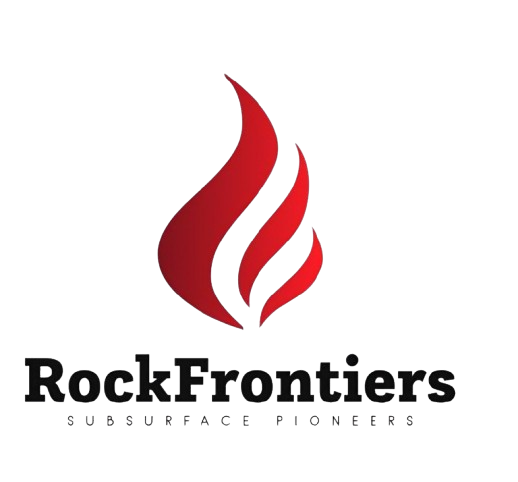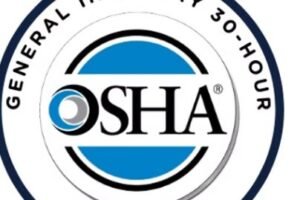Drilling Economics and Cost Management
Course Overview: This course focuses on the economic aspects of drilling projects, from budgeting and cost estimation to financial decision-making and cost control. Participants will gain an understanding of how to evaluate drilling projects economically, optimize costs, and assess financial …
Overview
Course Overview:
This course focuses on the economic aspects of drilling projects, from budgeting and cost estimation to financial decision-making and cost control. Participants will gain an understanding of how to evaluate drilling projects economically, optimize costs, and assess financial performance to ensure drilling operations are cost-effective and profitable.
📅 Day 1: Introduction to Drilling Economics
-
09:00–09:45 – Overview of drilling economics: key concepts and principles
-
09:45–10:30 – The role of economics in drilling project management
-
10:30–10:45 – ☕ Coffee Break
-
10:45–11:30 – The lifecycle of a drilling project: planning, execution, and evaluation
-
11:30–12:15 – Capital vs. operational expenditures in drilling projects
-
12:15–13:15 – 🍽️ Lunch Break
-
13:15–14:00 – Cost estimation methods: unit costs, cost breakdowns, and pricing models
-
14:00–14:45 – Tools for project budgeting and financial planning
-
14:45–15:00 – Recap and Q&A
📅 Day 2: Drilling Cost Components and Estimation
-
09:00–09:45 – Direct and indirect drilling costs: categories and calculations
-
09:45–10:30 – Equipment costs: rigs, tools, and machinery
-
10:30–10:45 – ☕ Coffee Break
-
10:45–11:30 – Personnel costs: labor, safety, and training
-
11:30–12:15 – Operational costs: fuel, maintenance, and consumables
-
12:15–13:15 – 🍽️ Lunch Break
-
13:15–14:00 – Cost estimation for specialized drilling operations (deepwater, horizontal)
-
14:00–14:45 – Benchmarking drilling costs against industry standards
-
14:45–15:00 – Recap and Q&A
📅 Day 3: Financial Decision-Making in Drilling Projects
-
09:00–09:45 – Financial analysis techniques: NPV, IRR, and ROI
-
09:45–10:30 – Risk assessment and uncertainty in drilling economics
-
10:30–10:45 – ☕ Coffee Break
-
10:45–11:30 – Decision-making in well planning: cost vs. operational efficiency
-
11:30–12:15 – The impact of technology on drilling costs: automation, MPD, and advanced rigs
-
12:15–13:15 – 🍽️ Lunch Break
-
13:15–14:00 – Break-even analysis and cost sensitivity in drilling projects
-
14:00–14:45 – Evaluating drilling alternatives: comparing conventional vs. advanced drilling methods
-
14:45–15:00 – Recap and Q&A
📅 Day 4: Cost Control and Optimization Techniques
-
09:00–09:45 – Cost control strategies in drilling operations
-
09:45–10:30 – Managing cost overruns and identifying inefficiencies
-
10:30–10:45 – ☕ Coffee Break
-
10:45–11:30 – Techniques for optimizing drilling performance within budget constraints
-
11:30–12:15 – Supplier contracts and negotiating drilling services for cost reduction
-
12:15–13:15 – 🍽️ Lunch Break
-
13:15–14:00 – Cost tracking and financial reporting during drilling operations
-
14:00–14:45 – Hands-on: creating a cost optimization plan for a drilling project
-
14:45–15:00 – Recap and Q&A
📅 Day 5: Evaluating Drilling Projects and Financial Management
-
09:00–09:45 – Evaluating project performance: cost vs. value delivered
-
09:45–10:30 – Long-term cost considerations: decommissioning, environmental impact
-
10:30–10:45 – ☕ Coffee Break
-
10:45–11:30 – Managing cash flow and financing drilling operations
-
11:30–12:15 – Economic considerations for field development projects and production life cycle
-
12:15–13:15 – 🍽️ Lunch Break
-
13:15–14:00 – Group activity: evaluating the economic feasibility of a complex drilling project
-
14:00–14:45 – Final discussion: financial decision-making and risk management in drilling
-
14:45–15:00 – Recap, Q&A, and course wrap-up
Target audiences
- Reservoir Engineers, Geologists
You May Like
📘 Underbalanced Drilling (UBD) Techniques and Safety
🎯 Course Description: This intensive 5-day program focuses on Underbalanced Drilling (UBD) – an advanced technique used to drill wells where the hydrostatic pressure of the fluid is intentionally kept below formation pressure. Participants will learn how to implement UBD …
📘 IOSH Managing Safely
🎯 Course Description: A practical, 5-day program designed to help managers and supervisors learn how to manage safety and environmental responsibilities in their teams. Emphasis is placed on identifying risks, measuring performance, and leading safely using internationally recognized good practices. …
📘 IWCF Level 3 Well Control (Surface BOP)
🎯 Course Description: This is an intensive course aimed at drilling / well service personnel needing to gain supervisory competence in well control using surface blow‑out preventers (BOP) under the IWCF standard. It covers theory, hands‑on practice, and assessments for …
Advanced Specialist Petroleum GeoMechanics
📘 Course Description: This elite-level course is tailored for petroleum geomechanics specialists and senior subsurface professionals engaged in complex field development projects. It provides a deep technical dive into stress modeling, anisotropic rock behavior, coupled geomechanical-reservoir simulation, fault/fracture mechanics, and …
📘 OSHA 30‑Hour General Industry Safety and Health
🎯 Course Description: This 5‑day course provides in‐depth knowledge of workplace safety and health in general industry sectors. It covers OSHA regulations, hazard recognition, safety programs, and industry best practices. Participants will gain the expertise needed to maintain a safe …






